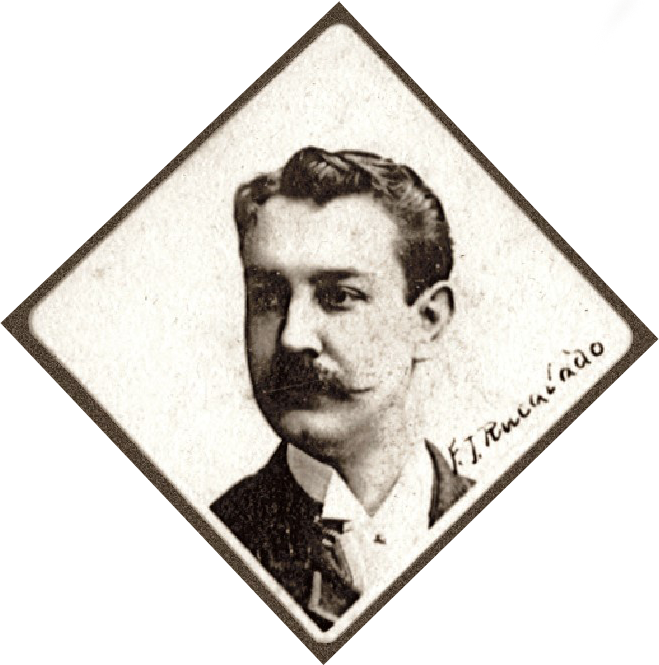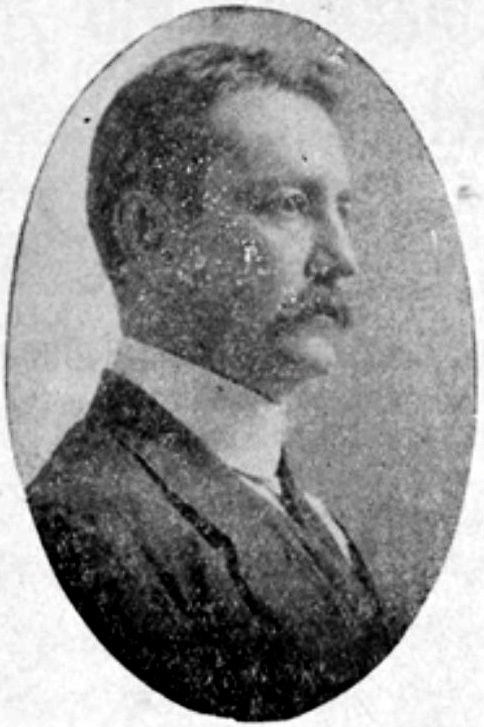Francisco J. Rucavado, MD, 1860-1935
By Emma Florio, Special Collections Library Assistant
Francisco J. Rucavado was born around 1860 in San José, the capital city of Costa Rica. He received his early education in his home country and trained in medicine under his older brother Genaro, who was already a doctor. He then came to the United States to continue his medical studies. From 1888 to 1890 he attended the Columbia College School of Medicine (now Columbia University Vagelos College of Physicians and Surgeons). He maintained close ties to Costa Rica while in the United States; in 1891 he was designated an attaché of the Costa Rican Legation in Washington, DC.
 |
|
Rucavado’s medical school class of 1893 portrait, Galter Library Special Collections.
|
Rucavado completed his medical training at Chicago Medical College, the predecessor to the Feinberg School of Medicine, earning his MD in 1893. He is most likely the first person of Hispanic heritage to graduate from the medical school. Coinciding with his graduation from medical school was the World’s Columbian Exposition, the monumental fair held in Chicago to commemorate the 400th anniversary of Columbus’s arrival in the Americas (albeit a year late). As a Costa Rican citizen with previous diplomatic experience and a current Chicago resident, Rucavado was an obvious choice for membership in the Costa Rican Commission. As a Commissioner, Rucavado helped host a reception on “Costa Rica Day” in the exhibit pavilion set up at the Exposition by the country’s government.
Rucavado began his medical practice in Chicago with an office in a drug store at Wabash Avenue and 18th Street. In 1894 he married Susie O’Reilly, a teacher and daughter of a wealthy Chicago grocer. After practicing for only a short time in Chicago, Rucavado and his wife returned to Costa Rica, where their son Harold was born in May 1896. Rucavado quickly established himself as a prominent member of the medical community in his home country. Throughout his career he held many positions on the Facultad de Medicina, Cirugía, y Farmacia (Faculty of Medicine, Surgery, and Pharmacy), the professional association that was responsible for governing and licensing doctors in the country. As president of the Facultad, Rucavado helped to found the first school of obstetrics in the country in 1897; he remained associated with the school as its director and as a professor.
 |
|
Portrait of Rucavado from La Prensa Libre newspaper, San José, Costa Rica, May 18, 1935.
|
Rucavado also became involved in welfare and medical work among the poor in Costa Rica. At this time, the country had a system of medicaturas de pueblo, “town doctors,” in which healthcare was provided to rural areas by physicians who worked within specific regions overseen by a member of the Facultad de Medicina. These physicians acted as public health officials and ensured that consultation would be available to all residents in the smaller towns. At various times Rucavado oversaw the medicaturas de pueblo in ten different provinces. He was also appointed the physician for venereal prophylaxis in provinces near the capital and acted as the superintendent of a rural tuberculosis sanatorium.
Rucavado and his family remained connected to Chicago in various ways. He returned to the city at least 3 times in his life: as a delegate to the International Municipal Congress in 1911; purchasing machinery for a garbage disposal plant as the president of San José’s municipal council in 1914; and finally in 1935, as a patient receiving medical treatment from his former Chicago Medical College professor William E. Morgan at Mercy Hospital. At that time his son Harold was consul general of Costa Rica with offices in Chicago. Rucavado died at Mercy Hospital on May 6, 1935. As his obituary in the Costa Rican newspaper La Prensa Libre stated, his death was an irreparable loss for his family, the Facultad de Medicina, and for the country of Costa Rica, “a quien siempre sirvió con cariñosa abnegación (whom he always served with loving selflessness).”
Selected References
“El duelo de la Familia Rucavado-Gómez." La Prensa Libre. May 18, 1935.
Palmer, Steven. From Popular Medicine to Medical Populism: Doctors, Healers, and Public Power in Costa Rica, 1800-1940. Durham: Duke University Press, 2003.
Updated: September 27, 2023